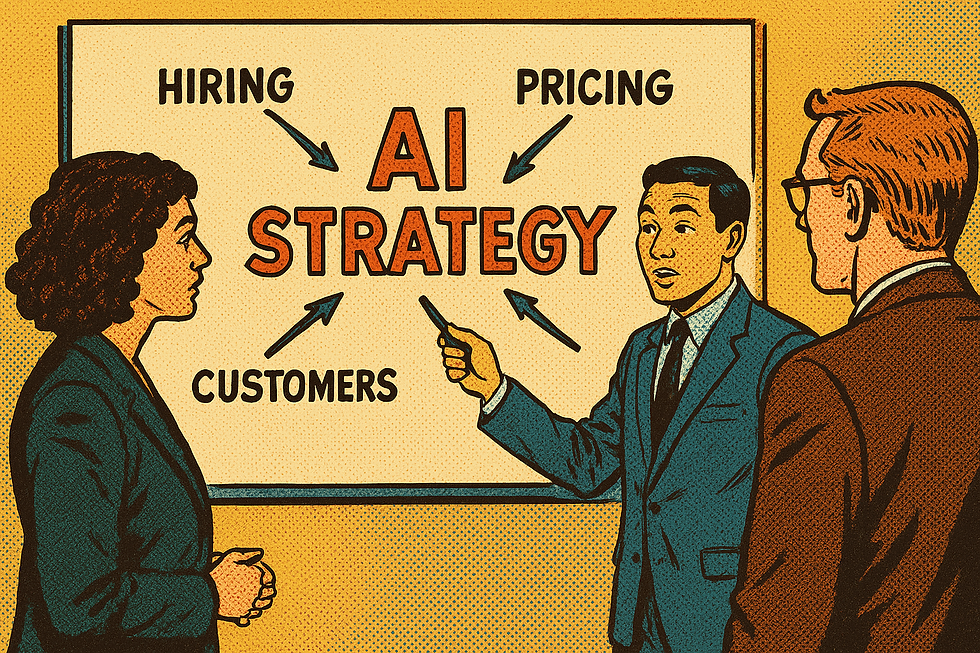I Hope AI Takes Your Job: What We Miss When We Fear the Machine
- Dell D.C. Carvalho
- May 23, 2025
- 2 min read
In 1997, the New York Times profiled 49-year-old Gladys West of New Jersey, a former telephone operator whose role was eliminated after decades of service. She had worked for Bell Atlantic before automation cut her job along with thousands of others. But West didn’t stay unemployed. She retrained as a patient service representative in a hospital, earning more than before. She was one of thousands who moved from switchboards to customer service, tech support, and network maintenance roles. The jobs didn’t disappear. They changed shape¹.
This story isn't rare. It's how progress works.

The Pony Express Is Dead and That's a Good Thing
In 1860, the Pony Express promised mail delivery between Missouri and California in 10 days. It shut down in 1861, just 18 months later, because the telegraph made it obsolete. Nobody weeps over this. The telegraph led to the telephone, which led to the internet, which now lets us send billions of messages per second.
Today, the United States Postal Service alone delivers over 400 million packages per day, more than the entire Pony Express system could have delivered in its lifetime². Technological change didn’t just improve the old system. It exploded what was possible.
So when people say, "I hope AI takes your job," it’s not always cruelty. Sometimes, it’s a reminder that fear of job loss is as old as work itself.
History Doesn't Repeat. It Accelerates
Yes, AI is faster and more capable than past innovations. And yes, it will automate jobs. Goldman Sachs estimates that 300 million full-time jobs could be impacted by generative AI³. But that doesn’t mean 300 million people will be permanently unemployed.
In the 1980s, ATMs were supposed to kill off bank tellers. The number of tellers actually increased because banks used the savings to open more branches⁴. Tellers now do more relationship-based work, while machines handle the cash.
We didn’t reject the car because it hurt the buggy business. We didn’t outlaw tractors to protect the plow. And we won’t stop AI. What matters is how we use it and how we protect and prepare workers.
The Real Question Isn’t “Will AI Take My Job?”
The real question is: What will we do with the time and talent it frees up? Just like the telephone operator who became a hospital admin, or the farmer who became a factory worker, the answer lies in policy, education, and leadership. Not nostalgia.
We need to stop pretending that stopping technology is the answer. The real solution is building safety nets, training programs, and new roles. Fast.
Because jobs will change. They always have.
And that's not something to fear.
#AIandJobs #FutureOfWork #Automation #TechnologicalChange #LaborHistory #AIimpact #AdaptationNotFear
References:
Finder, Alan. “Phone Operators Being Phased Out.” New York Times, 1997.
U.S. Postal Service Annual Report, 2023.
“The Potentially Large Effects of Artificial Intelligence on Economic Growth,” Goldman Sachs Global Economics Analyst, 2023.
Bessen, James. “How Computer Automation Affects Occupations: Technology, Jobs, and Skills.” Boston University School of Law, 2015.

.png)



Comments